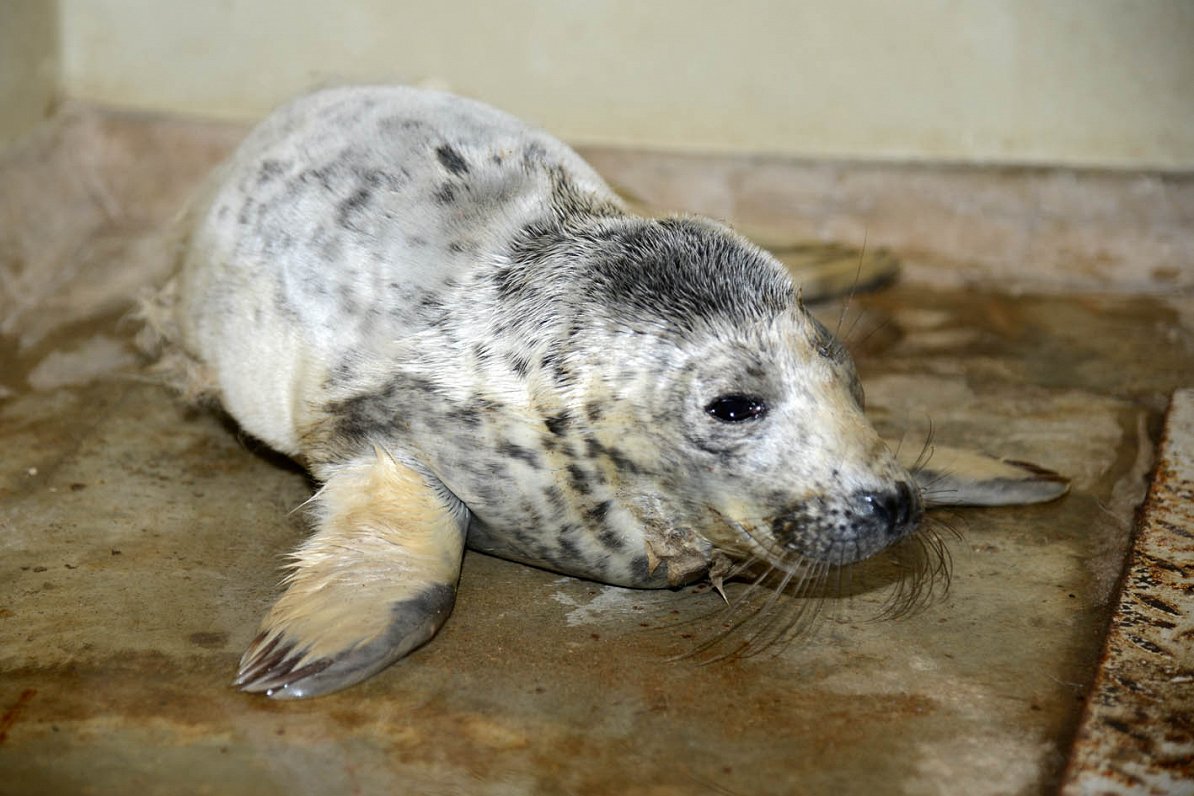According to DAP specialist Maija Rēna, the agency received information from a Saulkrasti resident during the first week of April that they noticed a full-grown seal attempting to “wake up” a baby seal. Unfortunately the story doesn't have a happy ending and the mother pulled the baby into the sea, but from a scientific perspective it's an unusual and interesting occurrence.
“Before now there is no documented evidence of a seal being born in Latvia – young seals born on the Estonian coast have reached us, but they've already begun an independent life and in the majority of cases have prematurely lost their mothers,” said senior DAP expert Valdis Pilāts.
The eyewitness filmed and photographed the event and an expert agreed that the seal was most likely dead, but unfortunately more information can't be gathered.
This year has seen the largest numbers of young seals in years on the coastlines, which could be attributed to climate change and the mild winter. Under these circumstances mother seals are forced to give birth on the small Estonian islands, instead of on the ice as usual. The seals make it to Latvia by swimming, and climb onto the rocks to rest and warm up.
DAP has received calls from several beach-goers asking them to rescue the seals, which is almost always unnecessary. Their greatest threat is actually dogs, as the young seals have little chance of survival after an attack.
“We're repeatedly urging residents – when going for a walk on the beach, keep your four-legged friends tied to a leash! The best help for the seals you see on the beach is ignoring them, so we urge you to leave them alone and keep away,” said Rēna.
As previously reported, many seals are found on the coast of Latvia, especially after warm winters. A total of ten baby seals found their new home at the Riga Zoo in 2015 - nine grey seals and a single ringed seal.
A few of them had been bitten by dogs, and veterinarians weren't able to save four of them. Specialists from Riga Zoo have been working with baby seals in distress (or who were picked up by people who should have been left alone). The 'alumni' of the Zoo have been sent to Zoos around the world, including China, Japan, France, Poland, Lithuania and Estonia. More than ten have been released back into the sea after being marked.
Baby seals who have been fed to reach 30-40 kilograms can live in the sea for weeks without eating, and during this time they can learn to fish. The only worry specialists have about them is that they don't get caught in fishermen's nets and don't walk into the 'tourist trap' of relying on vacationers for their livelihood.
There are three species of seals in the Baltics, of which the grey seal and the ringed seal are fairly common on the shores of Latvia, while the common seal fails to live up to its name around here. The season during which seals are born is March or April, usually on the islands of Estonia.





























